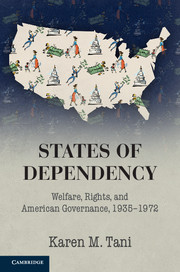Conclusion
Published online by Cambridge University Press: 05 April 2016
Summary
On July 28, 1957, as future “welfare law guru” Ed Sparer was preparing for his second year at Brooklyn Law School, the great social worker Edith Abbott quietly succumbed to pneumonia at her family home in Grand Island, Nebraska. Born more than fifty years apart, the two would appear to have had little in common. Abbott played a significant role in crafting the public assistance titles of the Social Security Act of 1935. Thirty years later, Sparer would attempt to convince courts to rewrite those very titles, hoping to make the law more generous and inclusive than legislators had ever intended. From her post as dean of the University of Chicago School of Social Service Administration, Abbott trained generations of public welfare workers, believing that skilled and professional employees could transform the administration of public assistance from the inside out. Sparer had come to view these same workers as cogs in a wheel: in their day-to-day actions they could be allies or enemies to the poor, but a larger rubric of laws and policies constrained everything they did. Abbott questioned the value of the “legal right to assistance”: absent public support (moral and financial), what did it even mean? Sparer made that legal right the focal point of his career.
In doing so, Sparer was convinced that he and his cohort of poverty lawyers were forging a new path – that their work “had no prior history,” no “historical precedents.” In fact, however, Sparer and Abbott shared a larger project: along with public welfare lobbyist Elizabeth Wickenden, poverty law theorists Jacobus tenBroek and Charles Reich, and a bevy of federal administrators (Jane Hoey, A. D. Smith, and others), they dedicated much of their lives to bringing American poor relief into what they saw as a more modern pattern of governance. They imagined a future in which poor relief was professionally and objectively administered according to only the most rational criteria; in which authority emanated from above the local level and imposed uniformity across jurisdictions; in which the governing laws were firm and fixed, rather than subject to value-laden local interpretations; and in which poor people were tethered to a benign central state, through the powerful and honorable device of rights.
- Type
- Chapter
- Information
- States of DependencyWelfare, Rights, and American Governance, 1935–1972, pp. 274 - 282Publisher: Cambridge University PressPrint publication year: 2016



